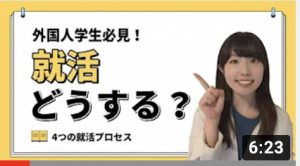JAPI Foreigner Career Survey 2018 – Quiz Answers
The following are the answers for the questions used in the JAPI Foreigner Career Survey 2018 regarding working in Japan.
If you have not taken the survey yet, please do so here before viewing the following answers. We would also appreciate if you shared the link (https://jp.surveymonkey.com/r/japi_career_survey_en) to the foreigners you know working in Japan so that we may receive more participants.
—
It is generally more difficult to land a job as a Sogo-shoku than an Ippan-shoku.
True
Fresh graduate recruiting in Japan is often divided into two tracks – the Sogo-shoku (literally the “comprehensive job”) and the Ippan-shoku (literally the “normal job”). The Sogo-shoku is usually expected to handle multiple roles whereas those hired as Ippan-shoku are often expected to perform administrative support in a specific field within the company.
Generally speaking, foreign companies tend to start their hiring process earlier than Japanese ones.
True
Many Japanese companies standardize their recruiting schedules following the rules set by the Business Federation that most of the major and large Japanese companies belong to. Many Japanese company will therefore only start issuing job offers from June for the graduating batch of the following year with the reason being to ensure that students are able to concentrate on their studies.
On the other hand, foreign companies are not bound by these rules and often do their hiring in the Autumn semester for 3rd year students.
It is generally harder for those who have already graduated in Japan to find a full-time job than current students.
True
Japanese society assumes that students will secure a job while being a student and therefore students who graduate before securing a job often are seen as people who are not able to plan forward. This makes their job search more difficult compared to current students.
In the context of job-hunting in Japan, an “ES” refers to an “Examination Score”
False
An ES in the Japanese job hunting context is an “Entry Sheet”.
An Entry Sheet is a document which one usually must submit when applying to a Japanese company. Generally speaking, questions asked include reasons for applying, one’s self introduction etc., but these may vary depending on the company.
Usually, students have to confirm their acceptance of a job offer by the end of September the year before they enter the company.
True
Most companies hold a ceremony to welcome the confirmed incoming fresh graduates on the 1st of October in the year before they graduate. Therefore, most students will have to announce their rejection of job offers to the companies they will not join at the end of September.
This ceremony is aimed at increasing interaction between newcomers and current employees and is separate from the Company Entrance ceremony. It is also common to have some form of training for incoming fresh graduates start from around this time.
OJT is an abbreviation for the term “Overall Job Training”
False
It means “On the Job Training” and refers to hands-on learning in the company.
In Japan, this usually means a more senior employee being a supervisor for a new employee and having the new employee learn about a job while actually performing it.
Generally speaking, it is said that Japanese companies train their employees to be specialists.
False
Japanese companies have a tendency to train employees to be generalists.
Japanese companies generally do not hire based on tasks which need to be done, but hire staff and then decide their allocated tasks after.
Therefore, employees are trained to be able to handle a wide range of tasks and be flexible to the company’s needs.
In Japan, the rate of consumption of paid leave is more than 70% (based on Expedia statistics)
No – the rate is 50%.
This means that if everyone receives 14 days of paid leave in a year, the average number of days that people in Japan take is 7 days of leave.
In recent years, with the increasing focus on work-life balance, the consumption rate of paid leave is increasing but it is still not high.
It is possible for companies to declare that overtime pay (up to a certain amount) is already included in the monthly salary.
True
Many Japanese companies set a monthly salary which already includes the pay for a set number of overtime hours and various benefits.
The “dai-ni shinsotsu (second fresh graduate)” market refers to the market for job-switchers aiming to switch from their first workplace up to 3 years after graduating from university.
True
In Japan, those who have graduated from university and who are aiming to switch jobs within 3 years of entering their first full-time job are called “Dai-ni shinsotsu”.
The “shinsotsu” (“new graduate”) part of the name refers to how such people, while being working adults, are viewed as having potential to grow and perform due to their youth.



